Video Transcription:
Women In Islamic Banking - VPRO Documentary (2011)
In the beginning, many religions considered collecting interest to be a sin. Jesus drove the merchants from the Temple. In Judaism, charging interest was originally a sin. Muhammad also declared the collection of interest haram, or prohibited. We have ignored this ban since the 15th century. But it still exists in Islamic doctrine. The Sisters of Islamic Finance Kuala Lumpur, Malaysia I am Fozia Amanulla, director of Eoncap Islamic Bank. My banking career started in 2007 ... when I started working for this bank. The Eon Group is Malaysia's seventh largest bank. In total, it has more than 160 employees ... including the five fully independent Islamic branches. The Eoncap Islamic Bank is 100% compliant with Sharia law. All of our activities are Sharia compliant. Regarding our customers, our products and investments. Products like mortgages are fully Shariah compliant. Car financing, personal loans ... Salam aleykoum, hello. To our mothers, our fathers, our grandmothers and our grandfathers ... to all Muslims, living and deceased. Allah, we implore You to bless our good deeds. And remove us from evil. You are all powerful. Allah, answer our prayers. I'm sure the basic principle of every Islamic organization ... is to watch, whatever they do, whatever the way ... to act in accordance with Sharia law. Integrity is very important. If you do not respect your faith, which requires you to remain honest ... one can easily deviate and perform non-halal acts. What happened during the financial crisis ... was strongly linked to the debt trade. Islamic finance totally forbids it. Debt can be packaged and repackaged ... but this is fictitious data ... it is not a concrete thing that can be resold on the market. In Islamic finance, debt must be asset-based. I understand that it would bring me much more money ... and that my premium would be much higher. But Islamic finance forbids it ... whether we want it or not. As long as we respect Sharia law, we cannot make mistakes ... and there is no room for error. Excellencies, ladies and gentlemen ... welcome to the 17th Islamic Banking Congress ... the largest annual meeting of Islamic financial leaders. 17 years ago, the number of participants filled at most two rows. Now more than a thousand participants come from more than fifty countries. This is a sign of a growing interest in Islamic finance. The theme for this year is the creation of a new growth model.After the financial crisis we experienced in 2008 ... the global call for change was aimed above all at banking ethics ... and not necessarily the numbers. Consumers, investors around the world have lost their fortunes. They took decades to accumulate them, and they went up in smoke. Not that they entrusted their money to incompetent banks ... they were very clever. It is therefore not due to a lack of clairvoyance ... but to ethics, which has been diluted ... during the golden age preceding the year 2008. I was a conventional investment banker for 13 years. I took care of everything from IOUs to stocks. Mortgages, derivatives, nothing Sharia compliant. Around 2004, I noticed the rise of Islamic finance ... and the possibilities it offered. I saw fit to venture into it. In my case, it was also a kind of spiritual development. You know, we get older, and some are looking for something else. Here in Asia, we had just come out of a crisis. I saw how Islamic banks promote fairness and justice ... in the financial world. I thought to myself: This goes beyond my job as an investment banker. This is how I fell into it. By venturing into Islamic finance ... I learned more about religion. And I discovered sources that I would never have found otherwise. It strengthened my faith. I feel it all the more since the Western financial crisis. It comes from everything that the Sharia prohibits. Gambling is prohibited, as is speculation. This total collapse is seen as a consequence of the mortgage crisis. It would never have taken place in Islamic finance. We cannot negotiate unfamiliar or misunderstood concepts. In response to the global financial crisis ... investors are looking for certain things. First, liquidity, and second, transparent governance. These two things caused the financial and economic crises that followed. We have seen the failure of regulators in the United States ... as part of the control of funds, like those of Bernie Madoff. What we have to watch out for ... by looking for new growth models ... it is to regulate the platforms ... on which we offer our products. The problem is, too much liquidity is flowing at the same time. Even my clients were looking for investments ... and expected a return that was not sustainable. We could not offer such returns to our clients. There was more money in circulation than possible investments. And each demanded very high profits. Competition has become increasingly fierce in the banking world ... and everyone wanted to deliver smarter, better products. We thus end up with promises of returns greater than 10% ... that didn't seem realistic. Take, for example, Bernie Madoff. Nobody said to him: How can you offer 20, 30%? While the actual return was 2% or 3%. But no one asked for anything. And some subprime mortgages were so complex that ... customers did not understand them. Investors thought: Such a smart and well dressed guy ... really must come up with such a good product that I don't understand it. And so people let themselves be carried away. The idea behind Sharia finance is to use its laws ... as a guide to create a new alternative ... for financial products: "participatory operations". A new system of values? - A new system of values. After the crisis, the West can learn values from Islamic finance. You cannot instill a good conscience in people. When you expose them a bundle of money, they forget their conscience. For us, it's not about preaching. It is the law, the supreme doctrine. It goes beyond all central bank rules. For us, it is about God. Those who are not motivated by faith ... would do well to consider these values and wisdom ... and regulate them. Because Islamic banks have not invested in such things. Sharia law did not allow this. One of the biggest misunderstandings ... it is that Islamic finance is reserved for Muslims. My clients are institutions based all over the world. I mainly focus on Asia ... over Singapore, Brunei, Thailand, Hong Kong and China in addition to Malaysia. Plus the Middle East, where there are many opportunities. Principal Global Investors ... represents 50% of my shareholders. With a capital of 212 billion dollars. The other 50 percent ... it is the CIMB group, an Asian investment bank. It is in fact the marriage between two strong partners: global investments and Islamic business knowledge. How are you ? Nice to see you again. - Me too. It's been a few months. You are splendid. Rex is there too. - Hello Rex, nice to see you again. You have traveled the whole world. Tell me about it. My last trip was to Germany and Geneva. There was a very interesting investor in Munich. I'm from Des Moines, Iowa ... where is the headquarters of Principal Financial Group ... an American Fortune 250 company. We provide all the DNA. We are the processor of products: strategy, pricing, technology. CIMB knows the Islamic market, and the distribution potential. We want to create three investment funds this year. We need a whole lot of sales support ... to reach our customers. To be present at the point of sale, throughout the Gulf. Because otherwise, you wouldn't be able to close the deal. The partnership between CIMB and Principal in Islamic finance ... is very promising. I have nothing but good things to say about it. And the future looks much better. The Islamic investment market ... in the middle and bourgeois classes ... is experiencing considerable growth in these countries. We are delighted with it. In Asia and the Middle East, the middle class was depositing ... his money in savings accounts. They were always happy with it. But interest rates have started to fall around the world. An average middle-class Islamic household ... a fast growing group, because it happens all over Asia ... needs more yield. They are looking for a bigger return on their investment. A savings account is therefore no longer sufficient. The question is therefore: What can we do? We have disposable income ... we want a pension, our children have to study ... we need to be able to pay off our mortgage ... where can we put our money? In mutual funds. But they are very religious and do not want to invest in a fund ... which invests in alcohol or tobacco companies. So they want a Sharia-compliant product. It must earn me more than my account ... not at 2% taxable, but at 12% tax-free. We therefore supply these products to the growing middle class. A Muslim cannot invest in a liquor business ... or tobacco, or any form of entertainment. In companies active in a branch prohibited by Islam. Today we present a new product. This is an Islamic savings account specially designed for women. And his name is "Anissa". Anissa means "women" in Arabic. Eoncap has five fully Islamic branches here in Terengganu. This place is very important to us, and this branch is very successful. Because it's in the right place, and the customers here ... appreciate Islamic banking products. We are particularly aimed at businesswomen. In Malaysia, many women are in business. In large companies, where they have a business, a store, a stall. Many Malaysian women work, as do mothers. Rather than depositing their money in a savings account ... they prefer the Anissa account, which earns them more. Ladies and gentlemen, no one can ignore ... what Malaysian women have accomplished. Many women have shown that they can play a big role ... in various sectors of the Malaysian economy. We, the Eoncap Islamic Bank, are very proud ... help and encourage women to progress ... and strengthen their financial position in a number of areas. Our savers are Muslims as well as non-Muslims. An analysis even shows that most of them are not Muslims. So we reach both groups in the consumer market. To start this meeting, I ask your attention for Mrs. Fozia ... the director of Eoncap Islamic Bank. Thank you. May peace be with you... God bless you and grant you His mercy. Let us first pray to the most glorious, the Sublime ... whose compassion made this reunion possible. With the health granted to us, we can prove ... that we are excellent bowlers. Guys, don't disappoint me. It is of course about making a profit. Competition is inherent in the financial industry. Where is your strength, where do you find a niche market? Your performance is expected to increase every year ... and the criteria for that are formulated very clearly. Ultimately, it's your results that matter. The center of gravity of the economy ... has moved to emerging economies, to Asia and the BRIC countries. These countries will show a huge economic boom ... over the next five to 10 years. At the height of the crisis, Islamic assets rose 9.8%. And we have seen customers withdraw their money ... big banks that have been around for hundreds of years ... while the savings holdings of Islamic banks increased by 9.8%. I would like to advise your spectators ... to consider the fundamental principles of Islamic finance ... to see beyond the concept of "finance according to faith" ... and reflect on the tangible benefits of Islamic finance. You will see that it is a more honest system. I was in the conventional banking world of European banks ... before working in an Islamic institution. Ultimately, it's the challenges, the opportunities ... the ability to change the things that motivate me and other women. Sharia law enforcement officers endorse each of the products we offer. Each Islamic bank has an internal team of supervisors ... that endorse products, operations, systems ... and the management of the bank, to ensure that it complies with Sharia law. What is the status of compliance? - We have studied the matter. We looked at the numbers for October 31. We were successful in getting 25 out of 50 approvals. Our Sharia monitors reported this to the business banking department. The exact date of approval of some products is not yet certain. We employ five people ... various organizations, which are trained in Sharia ... and who attend our monthly meetings ... to discuss everything. Not just products ... but also procedures and even advertising for our products. They have to endorse brochures to make sure they comply with Sharia law. We don't want pictures of women in bikinis in our brochures. It would not be Sharia compliant. On behalf of the Central Bank of Malaysia, I welcome you ... venerable Sharia experts. Let us pray to Allah, the Sublime, who authorized this meeting ... those first days of the month. I am Engku Rabiah Adawiah, I teach law. I also teach Islamic finance, Islamic securities and capital markets. I also give advice ... to banks and other institutions on Islamic finance and business. There has been much debate about the definition of "hiyal" as a legal concept. We will only use the definition directly or indirectly taken ... from different law schools. I think the western banking system is mostly geared ... on profit maximization. This is their main objective. We have capital, and we have to make the most of it. This is the most important for them. From the Islamic point of view, we also think of profit maximization ... but we associate it with social and ethical responsibilities. Because you can make money, but not in a dishonest way ... or who oppresses people. Conventional finance works with interest, or "ribah" in Arabic. Or elements based on interests, which Islam forbids. You can't charge interest on money you lend. You cannot take advantage of the help of someone who is in need of money. It's about three things: No interest, no gambling, no speculation. Interest is replaced by the concept of profit sharing. Gambling is prohibited. Subprime mortgages or derivatives are betting. And trading in derivatives is like betting, and that's speculation. It does not promote any real economic activity. Trade in derivatives and subprime mortgages ... has it greatly improved the economy? No. Islamic finance advocates that any financial transaction ... is linked to real economic activities. So there must be underlying assets. The idea is that you can make a profit through transactions ... responsibly and ethically. And therefore not according to his personal judgment alone. There are two types of "hiyal": the one that is allowed ... and the one that is forbidden. An exact definition is limited to what is allowed and what is not. In general, we think of money as a loan ... that God has given to man to use. We must use it responsibly. You can use it for yourself, but you also have responsibilities ... towards other people. Who is it ? It's Aisha. She is 11 months old. It's your daughter ? - Yes, she's my daughter. My seventh child. And can you take him like that? She wants nothing but her mother's milk. So I take him everywhere. Because I have to feed her. I was born a Muslim. In my family, religion has always occupied a very important place. The basis of religion has therefore always been anchored in me. Wearing the veil was perhaps not as widespread as it is now. At the time, it was not as common. I personally decided to wear one. One morning I took the veil and wore it. I looked in the mirror and it didn't suit me. I tried various styles ... then I said to myself: It's not bad. I thought about going to the office like this. Even my husband said: Is this temporary, are you giving it a try ... or is it permanent? I couldn't answer him, I didn't know. But I got used to it and I said to myself: It's good. And six months later, I was offered this job at Eoncap Islamic Bank. So it happened a bit by chance? - I hadn't planned it. I hadn't really applied. It happened like that, thanks to a friend. He said: They are looking for a deputy director at Eon Islamic ... and you seem to me to be in the best position. My husband encouraged me, and said to me: Give it a try. And that's what I did. As for personal loans ... last month saw a growth of 12 million. This is the weakest growth of the year. Essentially because in October, the Model 2 replaced the Model 3. So we had minimum growth in business loans. Our credits increased by $ 12.8 million last month. Although last year's total result ... shows an average growth of 15% since October. Good. I think we have to seriously worry ... personal loans. First... The goals are not met, but we also worry every month. Second, non-performing loans tend to increase. I also read the email from this morning ... on defaults and bad loans. Third, the restructuring is not meeting expectations. It is happening more slowly than expected. Finally, our fixed rate is at the level of personal loans. We need to know when to apply a variable rate. Being a woman leader has not been easy, even within the bank. Many of the heads of departments were men. They didn't like it. They were wondering how long I would stay. They said to each other: She will be gone in six months. But I stayed. There were a lot of challenges. It was not easy ... to bring people together so that they understand each other, to evolve as a team. It was the most difficult aspect. Yes, we have talented women in Malaysia. But especially in the area of Islamic finance. The Central Bank is headed by a woman, and she is very productive ... she is an activist in Islamic finance. The Financial Authority is also headed by a woman. This is another good example. You know, I think ... that it is not limited to Islamic finance. I think it's because it's a growing industry ... and that the banking sector in Malaysia has many very skilled women. In the conventional banking sector too. And we see that all over Asia. It's a changing market. What matters is the taste for risk and challenges. You have my card. Omar, how are you? Did you receive my new card? Do you work for Bursa Malaysia? - Yes indeed. Still halal? - Obviously. You have it hard. I have always remained halal since then. In Malaysia, it's easy. I didn't notice a glass ceiling. In the Gulf States, it's a bit more difficult. It is a male dominated society, just like the financial industry. I don't see anyone who is ... I do not believe that a single woman is the head of one of these banks. In Bahrain, it's great. It is an open place, a meeting place. But in a country like Saudi Arabia, it's much harder for a woman. It's already hard to enter the country, and afterwards, you can hardly move around. I have already been refused many times, even though I had a visa. Because they wanted my husband to come with me. I had a business visa, but they refused me. And a lot of times when I was talking with a potential client ... he ignored me and preferred to talk to one of my assistants. It was a man, who then spoke to me. Well, either ... I think that's the biggest problem: trying to bring ... these two different cultures. What is that ? A crocodile ? And who is this? Come give me a hug. Give mom a hug. Come on, let's get in the car. You ride ? What a smart boy. Do you make room for mom? Thank you. What have you done today ? Did you finish all your lunch today? Have you finished your rice? A mosquito bitten me in the leg. Did a mosquito bite you? Show me. Show me. My poor man, you are right. Mom will take care of you when we get home, okay? Show me that. Mom got bitten in the nose by a mosquito. It hurts. There, you see? It's red ? Say goodbye. In the morning, I get up very early, before 6 a.m. I then do my morning prayer and shower ... then I leave the room, because when Abdullah wakes up ... and he sees that I'm not there, he cries and asks where I am. In the evening, I try to get home as soon as possible, often around 6 or 7 p.m. Sometimes at 8 or 9 p.m., unless I have business dinners. What is he doing ? What is he doing ? At such a high position in the bank ... we have a lot of meetings during office hours. So I can hardly take care of my real work. I have meetings, I receive clients. So I do my work in the morning, or I take it home in the evening. And now that we have permanent access to his emails ... I can easily answer on my cell phone. If I have an emergency, I take care of it when he sleeps at night. It's easy, because I have access to it at home, then it's over. The most restrictive is to think ... it is the obligation to wait for the objectives ... talking to the board of directors, meetings ... That is binding. But I'm used to it, and I've been doing it for three years now. Yes, darling, an ambulance. Did you hear it too? The Islamic finance market is worth around $ 500 billion. In this territory, Southeast Asia. Including the Middle East, that's a trillion more. So a trillion and a half in total. In Islamic finance alone. The asset management market is smaller because it is newer. People weren't in mutual funds or anything like that ... and long-term investments. It started about 15 years ago. It's a very new market, and only in Southeast Asia ... it must be worth around $ 80 billion. But all over the world ... including in London and in major financial markets ... it's about $ 250 billion to $ 300 billion in assets under management. But this market is changing at 30% per year. A very large market, growing very quickly, full of opportunities. Islamic finance represents a huge opportunity for Europe ... to attract new investors, new capital. The center of global liquidity ... is found in the Middle East and Asia. The excess liquidity in Asia was four billion dollars in October ... and two billion in the Middle East. It's about economics, so if you want to attract investors ... it requires a great knowledge and understanding of the global market. 33% of private assets are managed in Switzerland. 200 billion dollars of this heritage within the Swiss banking system ... belong to Muslims. And none of this is handled in accordance with Sharia law. I was a private banker in Geneva for 17 years. My clients came from all over Arabia. During these 17 years where I managed the heritage of Arab clients ... within this Swiss private banking system ... a theme was recurring. My clients are Muslims. They are modern in every way, but they are Muslim. And they always keep in mind that if they have a heritage ... and that they entrust the management to someone ... they want him to be sensitive to their Islamic values. Our job as a banker is to provide a Sharia-compliant product ... but also equal to a conventional investment. Islamic heritage management must be equal from all points of view ... conventional asset management. Otherwise, we are doing our job poorly. Islamic heritage management ... must in fact be able to be sold to anyone. Hindus, Christians, Jews should not hesitate ... because it is equal on all levels, except that it is ethical. Everything all right in Malaysia? - Yes, because Asia is changing. In two days here, people asked me if I had a job for them. It's a challenge. Many people believe that Islamic finance is based on faith. It all depends on how you present it. If, on the European market, you intend it exclusively for Muslims ... it will of course have a religious aspect. But this way you exclude non-Islamic Europeans. And you wouldn't be able to offer good products to others. Could Islamic finance play a role in Europe? Certainly. In London, they already practice Islamic finance. I'm sure there will be demand. At the beginning, it is mainly Muslims who will opt for this finance ... but if the market understands the concept of Islamic finance ... and seize the benefits, it will be an open market, like in Malaysia. It's crazy that this is not known in the Netherlands. Just introduce it and see how the market evolves. You have a large Muslim population. Many would like to practice Islamic finance, but do not have access to it. From 5 to 8% of European employees are Muslims. Whether in Germany, France or the Netherlands. A Muslim who cares about his savings or his pension ... will want to see their money put into Sharia-compliant investments. Ultimately, I would like to see the European pension system ... give luck to European Muslims ... put their long-term savings in Sharia-compliant funds. As soon as they hear the word "Sharia" ... - Yes, they run away. It is a prejudice. They associate it with totally incomparable ideas. We are talking about banking products here. The United States will very soon be a multicultural society. The white population of the United States will represent in 2025, so very soon ... less than 50%. As in Europe. - Absolutely. We are all multicultural, we live on the same land. We have to adapt to the needs of the client. Just as we meet the needs of conservative clients ... who want fixed income. Some put their money under the mattress. Others put their money in bonds. The daring choose actions. Muslim customers also want a suitable product. It is very simple. For more information on the subject, you can also watch this other video.

























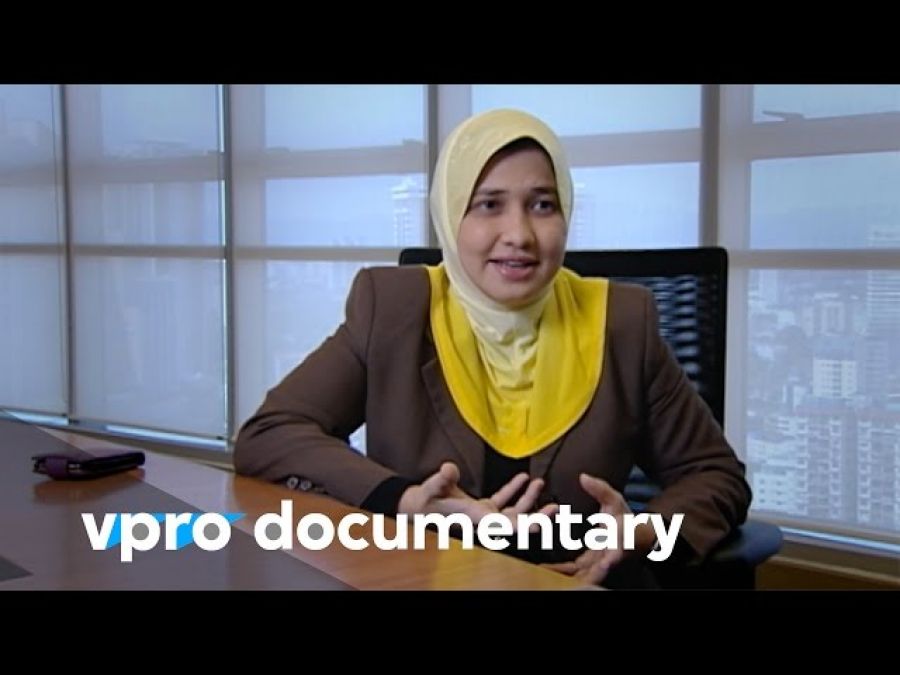

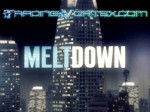
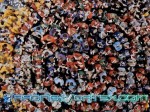

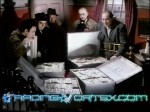

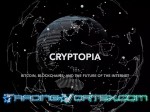
 TradingVortex.com® 2019 © All Rights Reserved.
TradingVortex.com® 2019 © All Rights Reserved.